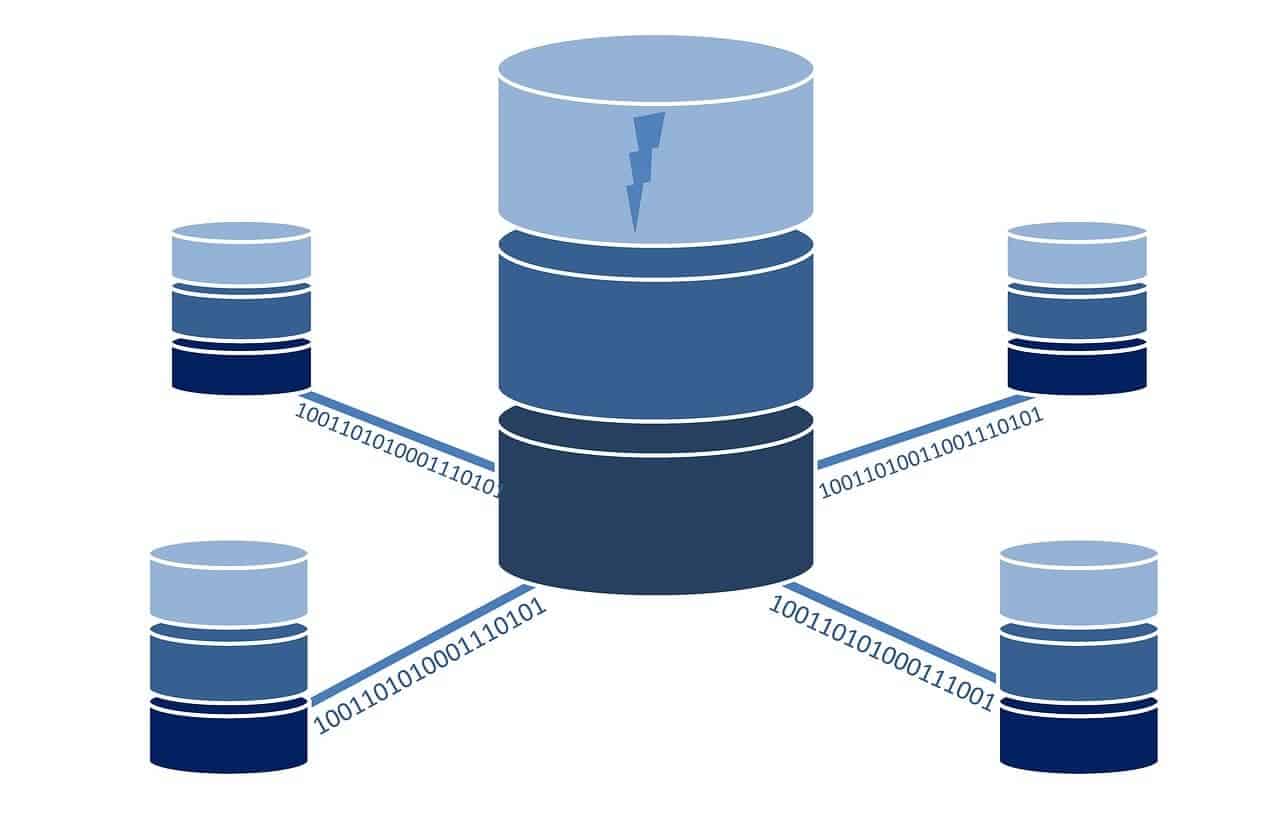Do you want to work in the exciting field of database administration? Have you been torn between choosing an Oracle DBA or a SQL DBA? You’ve come to the right place if so! This article will examine the similarities and differences between Oracle DBA and SQL DBA to help you choose which is best for your career.
Database administration is a lucrative and satisfying career path. Data safekeeping, management, updating, and security are the responsibility of database administrators. Choosing the appropriate kind of database administrator can be challenging as a result. Oracle DBA and SQL DBA present particular chances for success in the data industry.
In this article, we’ll compare Oracle DBA and SQL DBA to make it easier to decide which is best for your career aspirations. We’ll review the qualifications for the position, the necessary skills, the expected pay, the available certifications, and more. To help you make the best choice possible, continue reading to learn more about Oracle DBA and SQL DBA!
What Exactly Is An Oracle Dba?
Choosing between an Oracle Database Administrator (DBA) and a SQL Database Administrator (DBA) when it comes to a career can be challenging. An Oracle DBA is in charge of ensuring that Oracle databases and associated products run effectively. They perform tasks such as database backup and restoration, database performance monitoring, security measure implementation, data integrity upkeep, problem-solving, and application development optimization for the database environment.
On the other hand, the management of the Microsoft SQL Server database platform falls under the purview of a SQL DBA. They are responsible for designing and maintaining databases, running routine backups and restores, creating strategies for query optimization, keeping track of the performance and health of the servers, and implementing backup procedures to ensure data security.
When deciding which role would suit you better, it’s crucial to consider your skill set. That could be an excellent place to start if you efficiently use SQL Server. However, if you have some experience with programming or scripting languages like Python or JavaScript, an Oracle DBA might be an excellent fit for you. It’s also important to note that Oracle offers a wider variety of products than Microsoft, giving an Oracle DBA more opportunities to work on various software projects.
The best way to choose your path is to thoroughly research both options and choose the one that best aligns with your knowledge and interests. To gain a deeper understanding of what each job entails, think about speaking with people currently performing the roles and asking them about their experiences. Only settle once you find something that genuinely excites you; in the end, it’s all about finding something that fits your skill set and enables you to advance professionally.
What Is A SQL Dba, exactly?
It’s critical to comprehend what each role entails when deciding whether an Oracle DBA or a SQL DBA would be better suited for a particular career. You will examine the specific duties of a SQL DBA in more detail in this article.
The design and upkeep of a company’s database system are the responsibilities of a SQL Database Administrator (DBA). They must also guarantee that the data in the system is reliable, accurate, and current. Creating database solutions, performing frequent backups, and ensuring high levels of data security are among SQL DBA’s primary responsibilities. They also need to be able to monitor database performance and adjust as necessary.
To install new software updates and maintain current databases, a SQL DBA should also possess strong technical skills. To resolve any problems that might arise with their databases, they must also possess excellent problem-solving abilities. Additionally, to adapt their strategies, SQL DBAs must stay current with technological advancements. This entails keeping up with business trends and becoming knowledgeable about database management best practices.
In conclusion, a career as a SQL DBA can present a variety of exciting chances for development and expansion inside a company. Strong technical proficiency, meticulousness, and problem-solving skills are necessary, and they can help you stand out from the competition in this cutthroat industry. Numerous lucrative positions are available with the appropriate credentials and experience for those interested in pursuing this type of position.
What Are An Oracle Dba’s Responsibilities?
Many people need to figure out which career path is best for them when it comes to career paths: Oracle DBA or SQL DBA. Understanding each party’s roles and responsibilities will help you comprehend the two options better. We’ll examine the duties of an Oracle DBA in more detail in this article.
A company’s entire Oracle database environment must be managed by an Oracle Database Administrator (DBA). This covers setup, upgrading, patching, performance tuning, and troubleshooting. They must also be knowledgeable about backup and recovery procedures and database security. They must also be familiar with Oracle Database technologies like RAC (Real Application Clusters), Data Guard, and replication.
Oracle DBAs also require strong communication abilities to collaborate effectively with other organizational departments. They might be required to help with database environment problems or with the development of applications. They should also be able to generate reports on information about system usage and make recommendations for ways to boost productivity.
A solid technical background and a thorough understanding of the features and capabilities offered by the Oracle Database platform are general requirements for an Oracle DBA position. It also requires someone who can communicate effectively with other departments to ensure everyone’s needs are met when working with the databases. Although organizations can benefit from the services of SQL DBAs and Oracle DBAs, specific job requirements may make one more appropriate.
What Roles Do SQL Database Administrators Have?
A SQL DBA has a wide range of responsibilities. They are crucial in maintaining databases and operating efficiently as the organization’s administrator. Data integrity, backup processes, security, and performance optimization are just a few of the many facets of the database that a SQL DBA must be able to manage. They have to ensure that new features are regularly added to the database and that any problems are fixed as soon as they appear.
A SQL DBA must also be knowledgeable in query creation and be able to build sophisticated queries to extract data from databases. They must comprehend the database’s fundamental architecture and be able to troubleshoot any issues that may develop. A SQL DBA must also know software development lifecycles to plan for upcoming system changes or upgrades.
To ensure that tasks are completed on schedule and within budget, a SQL DBA must also have excellent communication skills and the ability to collaborate with other team members. It’s also crucial to remember that even though this job may seem complicated, it has many benefits, including competitive pay rates, job stability, and the satisfaction of knowing you’re doing your part to keep systems running smoothly.
In conclusion, being a SQL DBA calls for excellent technical knowledge and strong communication skills, making it an excellent career choice for those seeking an exciting and lucrative position in technology.
What Qualifications Must An Oracle DBA Possess?
Let’s look at the qualifications for an Oracle DBA first. Given that Oracle is a sophisticated and potent relational database management system, it makes sense that an Oracle DBA would thoroughly understand the system’s various parts. This entails having the skills necessary to build and maintain databases, configure server hardware and software for optimum performance, troubleshoot any issues that may arise with the system, and develop scripts for automated processes. An Oracle DBA must also know the SQL and PL/SQL programming languages. They must also be familiar with the Linux and Windows operating systems.
Administrative solid abilities are also crucial in this position. It includes the capacity to organize oneself and plan while juggling several tasks simultaneously. An Oracle DBA must be able to monitor security protocols and update them as required. They must also have excellent communication skills to collaborate closely with other team members or clients as necessary.
As a result of the extensive duties associated with this position, becoming an Oracle DBA requires commitment and effort. It can be a very fulfilling career path if you have the knowledge mentioned above abilities. After all, using databases effectively is one of the most crucial aspects of keeping businesses productive.
What Qualifications Do Sql Database Administrators Need?
As a prospective database administrator, you might wonder which of the two options is better for your career. Although many job opportunities exist in these well-liked fields, specific skills are needed. To assist you in making an informed choice, we’ll examine the skills needed for a SQL DBA in this article.
Let’s look at the technical qualifications for a SQL DBA first. It includes a basic understanding of server administration and database programming languages, such as T-SQL and PL/SQL. Additionally, you should be knowledgeable about database security protocols, such as authentication procedures and encryption tools. You should also be familiar with database management systems like Microsoft SQL Server and MySQL.
In addition to technical expertise, a SQL DBA must possess strong interpersonal communication skills to work effectively with other IT team members. To quickly identify any problems that may arise throughout your workday, you should also have problem-solving abilities. The ability to effectively manage all the databases under your control depends, among other things, on having strong organizational skills.
A career as a SQL DBA may be a great fit for you if you possess these interpersonal and technical skills. This field has grown in popularity over the past few years, given the abundance of employment opportunities and attractive salaries. You will succeed in this rewarding profession with the proper knowledge and experience.
What Career Options Are Available For Oracle DBAs?
An extremely satisfying and lucrative career as an Oracle Database Administrator (DBA) is possible. Your job as a DBA will guarantee the database system’s availability, performance, and security. To ensure the database system satisfies the organization’s needs, you will be responsible for its design, implementation, and upkeep.
An Oracle DBA requires solid technical proficiency in databases, programming languages like SQL and PL/SQL, data modeling strategies, and operating systems. Additionally, you must be highly skilled in communication and problem-solving. It also helps if you know the industry’s best database design and upkeep practices.
Both the public and private sectors offer numerous opportunities for Oracle DBAs. In the public sector, you may work for governmental or nonprofit institutions that run their operations using Oracle databases. To manage their sizable corporate databases or more compact applications created especially for their business requirements, private companies frequently employ DBAs. You can advance to senior roles like database architect or database manager with experience and certifications.
What Job Opportunities Are There For A SQL DBA?
Career options for a SQL DBA may be numerous. The job market for SQL DBAs is ripe with opportunity, offering positions in both large corporate settings and small offices. For this position to be successful, you must be able to learn and comprehend new database technologies quickly. A SQL DBA can have a successful career managing databases if they have the right experience and training.
Getting formal SQL and related technologies training is the first step to becoming a successful SQL DBA. Success in this field also requires a firm grasp of the fundamentals of database design and in-depth familiarity with query optimization. Once you have earned your credentials, staying one step ahead of the competition is critical to keeping up with the most recent industry trends and changes.
Finally, it’s critical to establish connections with other industry experts and potential employers. By networking with peers, you can access opportunities that would not have been possible without their advice or assistance. Creating a portfolio of work that demonstrates your skills and expertise is also advantageous to stand out from the competition when applying for jobs.
Combining all these factors, you can build a successful career as a SQL DBA. Anyone can succeed in this fiercely competitive industry with commitment and hard work.
What Advantages Do Oracle DBAs Have?
Many consider the advantages of becoming an Oracle DBA when selecting a career-oriented position.
The design, installation, maintenance, and security of an organization’s Oracle databases will be under your control as an Oracle Database Administrator (DBA). The potential for career growth and development in this position is very high.
You must understand Oracle databases thoroughly and possess strong analytical and problem-solving abilities to become an Oracle DBA. Additionally, you’ll need to stay current with database technology trends. Excellent organizational skills and meticulousness will be required for the job.
Being an Oracle DBA has many advantages. You’ll receive a competitive salary and have many chances to advance your career. While having access to some of the best resources available in the sector, you will work with cutting-edge technologies. Additionally, because you will be working with crucial business data, many organizations worldwide will find your work extremely valuable.
One of the most rewarding careers that provide both financial security and room for professional advancement is that of an Oracle DBA. It’s a fantastic way for tech experts to expand their professional networks while staying at the forefront of the current digital revolution.
What Advantages Do Sql DBAs Have?
Developing a career as a SQL DBA is highly recommended. The position requires technical skills, analytical and problem-solving abilities, and the capacity to comprehend intricate database structures and systems. With these credentials, you can work in the IT sector for a long time and assist businesses in meeting their data management and storage requirements.
The potential for high salaries is one of the most alluring advantages of working as a SQL DBA. Businesses are willing to pay top dollar for skilled DBAs to manage their most difficult database challenges. Additionally, experience brings a higher salary, so as you gain more expertise in this field, you can anticipate an increase in your pay over time.
Naturally, a career as a SQL DBA offers opportunities for professional growth. You can learn new skills and technologies by taking university classes or enrolling in certification programs provided by companies like Microsoft or Oracle Corporation. You can also attend seminars or workshops on particular database management facets. You’ll be able to help businesses that need assistance managing their databases even more as you hone your skills in this area.
Transitioning to a SQL DBA is a great way to advance your career and take it in exciting new directions while earning an excellent salary.
Frequently Asked Questions:
What Kind Of Experience Is Required To Become An Oracle or SQL DBA?
When deciding which career path is best for you, it’s crucial to consider the type of experience required to become an Oracle DBA or SQL DBA. Knowing the qualifications required for each role is crucial because becoming a successful DBA requires a specific skill set and knowledge base.
To become an Oracle DBA, you must have extensive database architecture experience and in-depth knowledge of the Oracle database system. Along with the ability to troubleshoot complex problems, you’ll also need to have a solid understanding of programming languages like Java and PL/SQL. Being familiar with different operating systems and IT infrastructure is also advantageous.
However, becoming a SQL DBA necessitates a solid foundation in relational databases and data modeling software. Additionally, you should be proficient in structured query language and have excellent analytical skills (SQL). Applying for this position can also make a difference if you have experience with cloud computing and Windows Server technologies.
Both jobs demand commitment, effort, and ongoing education regardless of your route. Keeping up with new trends and developments within the sector is crucial to remain competitive in the job market. As a result, it is crucial to thoroughly research each profession before making a choice.
What Is The Standard Wage For Oracle DBA And SQL DBA?
Many people are interested in the salaries of Oracle DBAs and SQL DBAs regarding career opportunities. Knowing the typical salaries for these two positions is crucial, given the wide variety of jobs available in the IT industry.
Depending on experience and location, the annual salary for an Oracle DBA is approximately $92,000. With additional training and certifications, this amount could rise. The average salary for a SQL DBA is $86,000 per year, slightly less than that of an Oracle DBA. Again, depending on experience and location, this number may change.
It’s also crucial to remember that other factors can affect the pay scales for Oracle and SQL DBA roles. These include industry knowledge, particular skill sets relevant to the job descriptions, and company size and reputation. Employers frequently give bonuses or other incentives to secure the services of highly skilled professionals rather than those of rivals.
Although pay scales can vary significantly from one position to another, understanding the typical salaries for Oracle DBAs and SQL DBAs can help potential employees anticipate what to expect from these professions.
What Are The Employment Prospects For Oracle DBA And SQL DBA?
When deciding between the two options for which career path to pursue, the job outlook for Oracle DBAs and SQL DBAs is a crucial factor. It’s critical to comprehend the current demand for each of these roles and their expected growth rate over the following ten years. Prospective Oracle DBAs and SQL DBAs may be better able to plan their futures after reviewing this information.
First and foremost, it’s crucial to consider the demand for both positions. Oracle DBAs are in high demand because of their specialized skill sets across various industries. Oracle databases, which demand high technical expertise, are frequently used in large business applications. Numerous opportunities are available for those with prior working knowledge of Oracle databases. As relational database management systems grow in popularity, there is also a high demand for SQL DBAs (RDBMS). Employers seeking seasoned experts in this field find these systems appealing because they demand an expert-level comprehension of SQL commands and queries to be used properly.
Both positions have a promising growth rate anticipated for the upcoming ten years. According to recent data from the US Bureau of Labor, Oracle DBAs and SQL DBAs are among the computer and information systems management jobs expected to grow by 11% between 2019 and 2029, faster than the average for all other occupations Statistics (BLS). This suggests that both positions will remain in high demand over the ensuing years as companies continue to rely on complicated databases to remain competitive in their respective markets.
In general, choosing the career path that may be most suitable for you requires understanding the job outlook for Oracle DBAs and SQL DBAs. Before deciding which role to pursue, it’s critical to consider your own career goals about these projections because both positions have promising growth potential over the upcoming ten years.
For Oracle DBA and SQL DBA, are there certifications available?
When it comes to lucrative career opportunities, both Oracle and SQL Database Administrators (DBAs) can provide them. Both Oracle DBAs and SQL DBAs need certifications to distinguish themselves from other job candidates and gain an advantage over them in the hiring process.
Both Oracle DBAs and SQL DBAs can, thankfully, earn several certifications. A well-liked certification among Oracle DBAs is the Oracle Certified Professional (OCP) for Oracle Database 11g or 12c. To earn this certification, you must install the Oracle database, configure, manage, monitor, back up, and troubleshoot. Those who want to work as SQL DBAs can also choose the Microsoft Certified Solutions Associate (MCSA) certification, which offers credentials for managing MS SQL Server 2012/2014 databases.
More specialized certifications are available besides these two primary certifications, such as the Oracle Database 12c Administrator Certified Expert (OCE), which focuses on advanced administration tasks like performance tuning and the automation of routine tasks. The MCSE: Data Platform Certification is a different choice; it focuses on data management in a corporate environment.
Any professional in the tech sector today needs to certify their skill set, but Oracle or SQL DBA aspirants should take this step incredibly seriously. Considering a future career as a DBA should research which certifications they need to stand out from other applicants since they can obtain and demonstrate proficiency in either field.
Do Oracle DBA and SQL DBA Have Any Differences?
There is a lot of discussion among IT professionals about the distinctions between Oracle DBAs and SQL DBAs. Many people mistakenly believe they are interchangeable, but there are some clear distinctions between them. To decide which would be the better career choice for you, it’s critical to comprehend these distinctions.
To begin with, Oracle DBAs are experts in handling Oracle databases, whereas SQL DBAs are experts in handling Microsoft SQL Server databases. Although they both involve managing databases, the tasks they perform depend on the kind of database they are managing. Installing and updating software programs, setting up security protocols for access control, creating user accounts, and troubleshooting any database problems are all tasks that Oracle DBAs are in charge of. But SQL DBAs concentrate on enhancing query speed and fine-tuning performance within the framework of Microsoft SQL Server.
The two different roles each have advantages in terms of employment possibilities. Oracle is an enterprise-level platform that many large organizations use, so Oracle DBAs typically have more job options than SQL DBAs who work for smaller businesses or organizations. But whether you decide to pursue a SQL DBA or an Oracle DBA role, having certifications can help improve your chances of finding jobs in this field.
No matter which path you choose to pursue a career as either an Oracle DBA or a SQL DBA, being aware of the distinctions between the two can help you make a more informed choice about your future career path. After adequate research and preparation, you can decide which path suits your needs and skill set.
Conclusion:
In conclusion, based on the individual, both Oracle DBAs and SQL DBAs can be excellent career choices. A person can have a successful and lengthy career as an Oracle DBA or SQL DBA with the appropriate training and certifications.
The salaries of Oracle DBAs are typically higher than those of their SQL counterparts. The employment outlook for both positions is anticipated to hold steady in the upcoming years.
Your skill set and personal preferences will ultimately determine which path you take. You might discover that one role fits your skills better than the other. Make sure the career you select fits your lifestyle and is one for which you have passion.






















